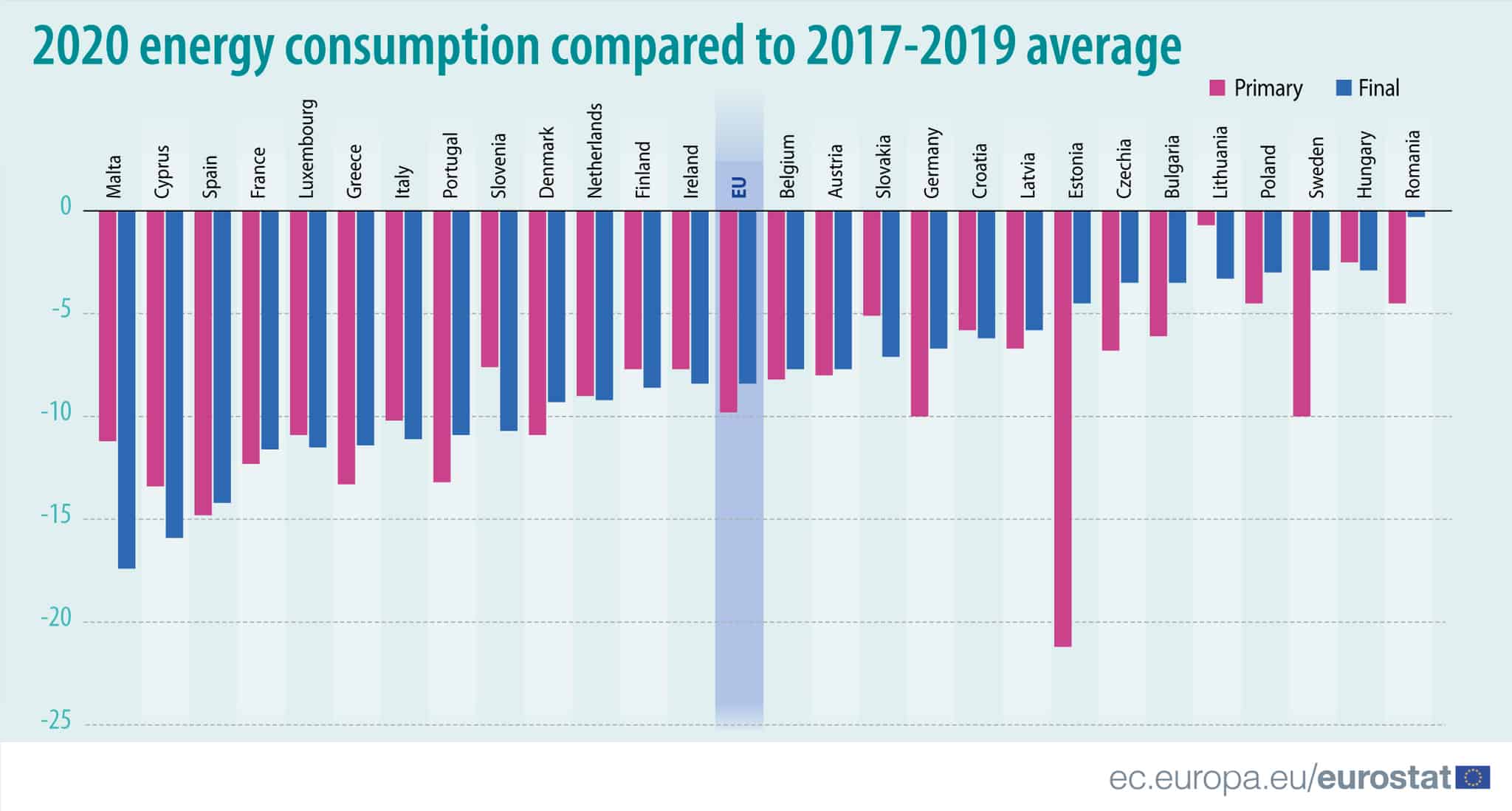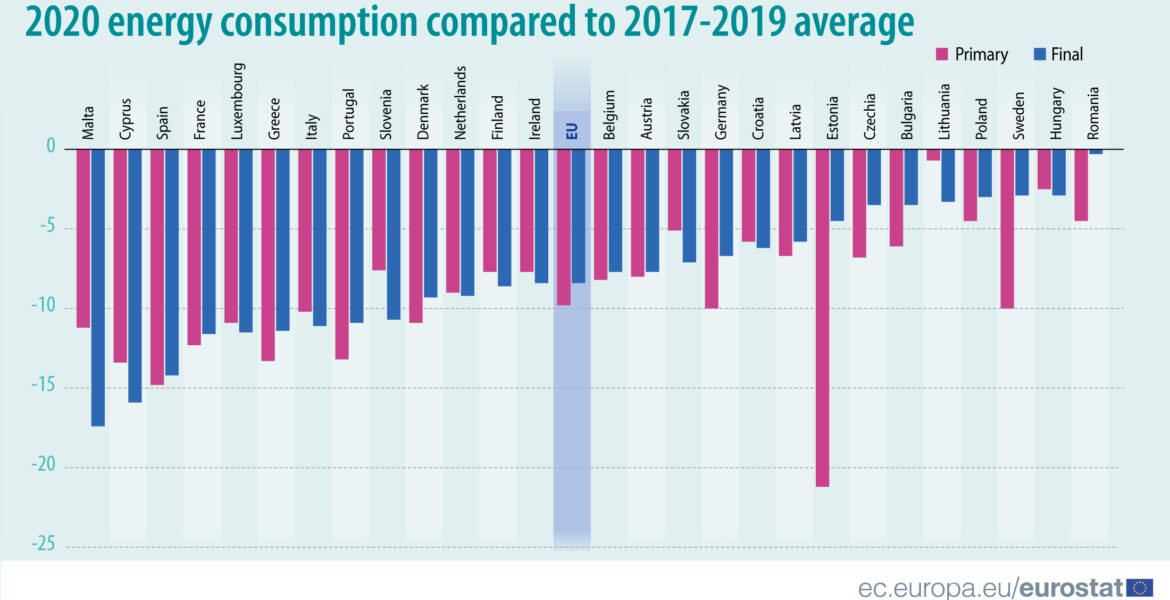Greece and Cyprus have seen a massive drop in primary energy consumption at approximately -13%, with the EU average sitting at just under -10% according to the latest Eurostat data.
According to the report, EU energy consumption in 2020 reached the lowest levels since 1990 (the first year for which data are available), which is largely explained by the effects of the pandemic. It peaked in 2006 when primary energy consumption was 15.1% above the 2020 target and final energy consumption was 9.0% above the 2020 target.
Compared with the 2017-2019 average, primary energy consumption decreased by 9.9% at the EU level and final energy consumption by 8.4%. A significant part of this sharp drop is due to COVID-19 related restrictions.
Primary and final energy consumption drop in all Member States
When comparing with the 2017-2019 average, primary energy consumption decreased in all EU Member States. The highest decreases were recorded in Estonia (-21.2%), followed by Spain (-14.8%) and Cyprus (-13.4%), while Lithuania (-0.7%), Hungary (-2.5%) and Romania (-4.5%) registered the smallest reductions.

The same general drop was also registered in the final energy consumption compared with the 2017-2019 average. The highest drops were registered in Malta (-17.4%), Cyprus (-15.9%) and Spain (-14.2%) and the smallest in Romania (-0.3%), Hungary (-2.9%) and Sweden (-2.9%).
[Eurostat]

